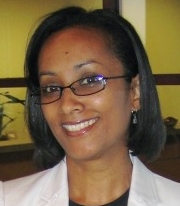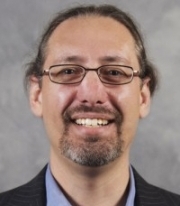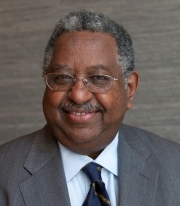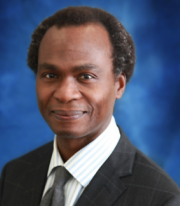Bios
Planetary Health
Co-Directors
Woutrina Smith, DVM, MPVM, PhD
UC Davis
- Professor of infectious disease epidemiology, School of Veterinary Medicine

Woutrina A. Smith, originally from Alaska, studied at Pomona College and then earned her DVM, MPVM, and PhD degrees from UC Davis. Her research program utilizes a One Health approach locally and globally to bring together professionals and stakeholders across disciplines spanning the natural and social sciences. Dr. Smith has active research projects in Africa and Asia, as well as in California, where multidisciplinary teams work together to solve complex health problem in innovative ways. Dr. Smith has received funding from diverse sources including the National Institutes of Health, the US Agency for International Development, the US Department of Defense and the Bill & Melinda Gates Foundation. As capacity lead for the global USAID Predict Program for the past seven years, Dr. Smith works with scientists and stakeholders in 30 countries to help build local capabilities to conduct health surveillance in animal and human populations at key interfaces where new diseases are likely to emerge. She was involved in the UCGHI One Health Center of Expertise and has made linkages with all ten UC campuses, the UC national laboratories and many international partner institutions. She teaches in the professional DVM, graduate and undergraduate programs, where she brings her field and laboratory research experiences into the classroom to provide real world context.
Planetary Health
Deputy Directors
Federico Castillo, PhD
Associate Director, UC Berkeley
Nancy Suski, PhD
Associate Director, LLNL
Samantha Ying, PhD
Associate Director, UC Riverside
Women's Health, Gender and Empowerment
Co-Directors
Ndola Prata, MD
UC Berkeley
- Fred H. Bixby, Jr. Endowed Chair in Population and Family Planning
- Professor in Residence, Maternal and Child Health, School of Public Health
- Director, Bixby Center for Population, Health and Sustainability

Ndola Prata, a physician and medical demographer from Angola, earned her medical degree from the University of Angola and an MSc in medical demography from the London School of Hygiene and Tropical Medicine.
Dr. Prata began her career practicing medicine in Angola for 10 years and served as head of the Social Statistics Department at the National Institute of Statistics of Angola. Shortly after moving to the US, while beginning her tenure as a researcher and lecturer at UC Berkeley, she served as a demographer/analyst for the Centers for Disease Control's Division of Reproductive Health for six years, a role she resumed briefly from 2010 to 2011.
In addition to Dr. Prata's current research in sub-Saharan Africa, she also has considerable experience conducting projects in Latin America, and Central and South Asia. She is especially interested in family planning, abortion, safe motherhood and maternal mortality. Her research focuses on the design, implementation, and evaluation of family planning and maternal health interventions that maximize distribution and financing to increase access to contraceptives in developing countries, particularly for underserved populations. Her projects investigate strategies for harnessing existing resources, including human capacity and health care infrastructure, while also gathering evidence for setting priorities on national health agendas.
Dallas Swendeman, PhD, MPH
UCLA
- Associate Professor In-Residence, Psychiatry and Biobehavioral Sciences, David Geffen School of Medicine

Dallas Swendeman is an applied social and behavioral scientist whose work focuses on multi-level interventions at the intersection of empowerment, prevention, self-management and mobile and social media technologies. Dr. Swendeman has multi-disciplinary training in psychological and medical anthropology, sociology, organizational studies, epidemiology and community health sciences (public health).
Over the past 20 years, he has led and supported projects developing, testing, adapting and scaling up evidence-based interventions for HIV prevention, substance abuse, self-management and empowerment with youth, sex workers, and persons living with HIV. More recently, Dr. Swendeman's work has focused on mobile health ("mHealth") using text-messaging, interactive voice response, smartphone applications, and social media for research and intervention. In particular, his work is exploring mixed-methods research and context sensing mobile technologies with adolescents and parents, mobile applications to support home visiting community health workers to address pre- and post-natal support and for sex workers around HIV/STD prevention. His work has been conducted with community-based partners in the U.S., India, and South Africa.
Women's Health, Gender and Empowerment
Deputy Directors
Ushma Upadhyay, PhD, MPH
UC San Francisco
Jennifer A. Wagman, PhD, MHS
UC San Diego
UCGHI Director Emeritus
Haile T. Debas, MD

Haile T. Debas, MD, is recognized internationally for his contributions to academic medicine and is widely consulted on issues associated with global health. His career as a physician, researcher, professor and academic leader spans over four decades in Canada and the United States. At the University of California, San Francisco (UCSF), he served as chair of the Department of Surgery, dean of the School of Medicine, vice chancellor, chancellor, and founding executive director of Global Health Sciences. He was the founding director of the University of California Global Health Institute from 2009 to 2016.
A native of Eritrea, Dr. Debas received his MD from McGill University and completed his surgical training at the University of British Columbia and post-doctoral fellowship at UCLA. He is the Maurice Galante Distinguished Professor of Surgery, Emeritus at UCSF and was a lead editor of the Essential Surgery volume of Disease Control Priorities, Third Edition (DCP3), published by the World Bank in 2015. Dr. Debas is a member of the National Academy of Medicine and a fellow of the American Academy of Arts and Sciences. He currently serves on the Board of Trustees of the Aga Khan University and has served on the Board of Regents of the Uniformed Services University. He was instrumental in the creation of the Consortium of Universities for Global Health, serving as the founding chair of its board of directors.
ILTI Director
Oladele A. Ogunseitan, PhD, MPH
UC Irvine
- Professor of public health and social ecology
- Jefferson Science Fellow, National Academies of Sciences, Engineering and Medicine
- Program Director, Environmental Health Sciences

Dr. Ogunseitan serves as director of UCGHI's collaborative effort with the UC Office of the President's Innovative Learning Technology Initiative (ILTI), developing a series of online global health courses available to UC undergraduates system-wide.
He is the founding chair of UC Irvine’s Department of Population Health & Disease Prevention. After undergraduate training in Nigeria, he earned his doctorate in microbiology at the University of Tennessee, and his MPH at UC Berkeley, where he also earned a certificate in international health. He earned a certificate in Teaching by Case Method at the Harvard T.H. Chan School of Public Health. In 2012, the international OpenCourseWare Consortium awarded him the Leadership Excellence Award. His research focuses on the intersection of international development and population health, with the goal of discovering new risk factors and strategies to prevent their impacts on vulnerable populations. He is the author of Microbial Diversity (Wiley, 2005) and editor of Green Health (Sage, 2011). During 2016-2017, he worked with the U.S. Department of State’s Office of International Health and Biodefense on emerging policy issues. He currently serves on the board of directors of the Association of Schools and Programs in Public Health.
